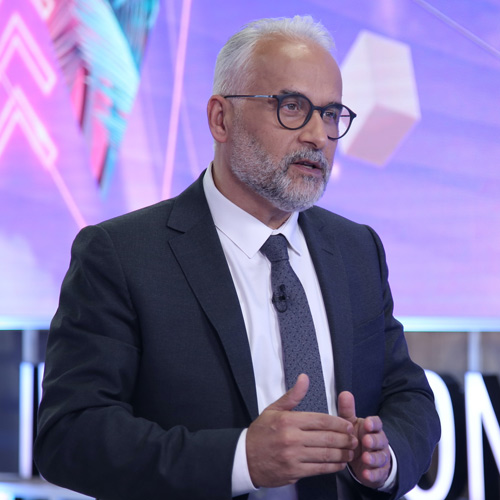18 March 2025, Tue |
6:27 AM

The COVID-19 pandemic has reinvigorated a global digital revolution, particularly in the Arab East, by linking individuals and providing them with access to vast amounts of data, information, and media.
According to Professor Fouad Mrad, the longest-serving jury member on Qatar Foundation’s (QF) edutainment TV show, Stars of Science, society has had to embrace STEM education for sustainable growth within the MENA region.
“This stimulated access to knowledge leaves governments and parents no choice but to help facilitate access to STEM fields among the next generation, and introduce related policies to maximize the benefits to society,” he said.
Prof. Mrad, a lifelong advocate for STEM education and the United Nations’ Frontier Technologies Manager, emphasises how the event has benefited the Arab world, both through the projects it presents and its attempts to build an entrepreneurial culture.
“STEM-based innovation offers the highest added value from novel ideas, especially with the local markets’ craving for solutions. Stars of Science introduced and demonstrated a ‘can do’ culture to Arab youth, showing them that they can cultivate their ideas in this region,” he explained.
Prof. Mrad went on to say that, given the challenges of education, health, and unemployment, local communities must address these concerns by focusing on STEM-based education and youth-focused innovation activities.
“A blend of educated youth skilled with STEM-enabled tools and solutions addressing these longstanding problems is a recipe for successful implementation of the sustainable development goals. Innovators could transform a novel STEM-based idea into a marketable product addressing identified needs, creating opportunities for the individual and jobs for others, with wealth for society and pride for the family.”
Stars of Science is continuously looking to encourage, nurture, and help build the Arab region’s incredibly brilliant young population. Season 10’s winner, neurosurgical alumnus, Associate Professor (PD) Dr. Walid Albanna, returns as a jury member this year.

“For more than a decade, Stars of Science has demonstrated how we in the Arab region can encourage our young talent to pursue scientific excellence and invest in their ideas. The show made innovation and entrepreneurship fun and engaging, offering aspiring researchers, engineers, and inventors a space where their ideas are not bound by practical restrictions and I’m delighted to join the jury this season,” says Dr. Albanna
Dr. Albanna wowed the jury and audience in 2018 with his innovation, the Neurovascular Retina Analyzer, a portable robotic camera that scans the retina and aids in the monitoring of stroke victims. Dr. Albanna’s unique perspective as a juror adds to the show’s appeal, and he pushed this season’s top Arab inventors to reach their full potential.
Prof. Mrad noted that Stars of Science has had a huge impact on Arab youth and their families, noting that many of the show’s innovators, such as Dr. Albanna, were young viewers who mustered the confidence to apply.
“Many of them recall being motivated to prepare ideas for multiple years before applying to the show, ensuring that they take full advantage of the opportunity, prove their ingenuity, and change the lives of many,” he said.
Stars of Science is part of the Qatar Foundation’s Research, Development, and Innovation (QF R&D&I) umbrella of STEM-focused institutions and activities, which complements this landscape by reaching out throughout the region and beyond. The show, as well as other important initiatives like the Qatar Academy for Science and Technology, Qatar Science & Technology Park, Qatar National Research Fund, and others, all work to promote purposeful engagement in the fields of science, technology, engineering, and mathematics in Qatar and beyond.
“Through its multifaceted initiatives and programs, QF contributes tremendously to STEM education and engagement throughout the region, ranging from quality basic education to post-doctorate relevant research, from purposeful funding all the way to localized research and development,” said Prof. Mrad.
Season 13 will premiere on seven regional channels and online on September 10, 2021, and will continue until October 22, 2021. Professor Mrad and Dr. Albanna will preside over a fresh generation of young Arab inventors. Visit www.starsofscience.com for a complete broadcast schedule for Season 13 of Stars of Science.